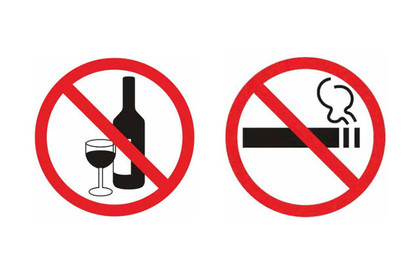The Senate at the 36th plenary session on Tuesday approved a new version of the Restricting the distribution and consumption of alcohol and tobacco products Bill. The Bill was passed by the Legislative Chamber on 25 October.
In the summer, the senators had on several occasions rejected the Bill, after which it was finalized by a conciliation commission of members of the two houses of parliament. The Bill must be signed by the president. After that, it will take effect within three months, and provisions regarding packaging and labeling requirements for tobacco products, tobacco and nicotine consumption devices within a year.
Speaking at the meeting, Chairwoman of the Senate Tanzila Narbayeva said that limiting the distribution and consumption of alcohol and tobacco products should turn into a nationwide movement.
“We are talking about the health of the public, first of all, young people - the future of the nation ... We strive to introduce a healthy lifestyle in society and believe that the law will be an important step along this path,” she said.
Tanzila Narbayeva stressed that the Bill is quite comprehensive, but all its provisions should work in practice.
The Bill prohibits the sale of alcohol and tobacco products, as well as devices for the use of tobacco and nicotine to persons under the age of 21 (now - 20 years), as well as persons under 21 years of age (new requirement).
It will not be possible to sell these products without the direct participation of the seller, including through vending machines and other electronic or mechanical devices, from self-service shelves and in the form of e-commerce (with the exception of sparkling and natural wines), including through delivery by any means.
It is prohibited to sell these products by way of mobile and remote trade (from hands, trays, baskets, hand carts), outside stationary trading facilities, in pharmacies and in premises intended for the sale of children's goods. A ban is also introduced on the sale of such products that imitate children's toys, sweets or other children's products.
Alcoholic and tobacco products and devices for the use of tobacco and nicotine cannot be sold on the territories of healthcare organizations, educational organizations, cultural institutions, sports and fitness facilities, sanatoriums and medical and social institutions.
Stationary trade facilities and service facilities selling these products cannot be located at a distance of less than 200 m in a straight line from the territories (this word supplements the current norm) of educational, sports and religious organizations. Now there are cases when cigarette and alcohol shops are located near schools and kindergartens, while shops and regulatory authorities justify this by saying that the distance of 200 m is measured from the gates of educational institutions.
The 200 m limit does not apply to trade facilities located on the territory of shopping malls (markets) with a total trading area of more than 1000 sq. m. m and in the fair pavilions.
The Bill prohibits the sale of product if it does not meet the requirements of regulatory documents in the field of technical regulation and does not have documents confirming the quality of the product.
It will be impossible to sell these products if there is no medical warning on the consumer packaging, if the consumer packaging of tobacco products contains less than 20 cigarettes (for cigarettes), without consumer packaging (pack, block) or by the piece (for cigarettes).
It is prohibited to sell tobacco products, as well as devices for the use of tobacco and nicotine in the territories and premises (with the exception of duty-free shops) of railway stations, bus stations, airports, river ports and metro stations intended for the provision of passenger transportation and personal services.
Alcoholic products (with the exception of beer) cannot be sold at prices below the minimum wholesale and retail prices.
A person who directly sells alcohol and tobacco products, as well as devices for the use of tobacco and nicotine, will be required to require a buyer who looks younger than 21 to present a document proving his identity and age. In the absence of a document, the buyer should be denied the sale of these products.














